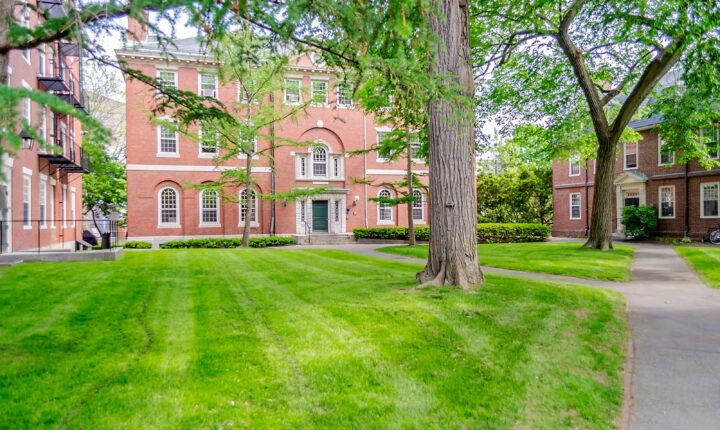Just the PeaksThis newsletter at a glance
|
Everest makes the case for the lucrative college market
The collegiate rental market has gotten a bad rap for decades.
People hear horror stories of endless noise complaints, broken appliances, overflowing toilets, piled-up trash, abandoned furniture, and months of unpaid rent. In the eyes of a landlord, this image is scary. It also follows student tenants well into their twenties as they struggle to secure housing and rid themselves of the ‘party animal’ stereotype.
So, is the myth necessarily true?
If your property is located near a university and you decide to lease to college kids, are you taking a huge risk—or ensuring your rental success? Let’s explore.
Young. Money?
Despite today’s youth being listed among the worst possible tenants, this assumption is categorically untrue. In fact, Everest believes renting to students may be the best-kept landlord secret. Still, you have to be careful when selecting any tenant for your property.
Once you rid your mind of the pop culture stereotype, you start to realize the many unique advantages of renting to young people. Whether you own a single-family, multi-family, or apartment building, it’s a great idea to market to the college crowd.
Everest has the complete guide for landlords renting in a college town. Before signing, consider the upsides, downsides, and best tips for advertising to academia.
PROS
Consistent demand

If your property is anywhere near a college, rest assured you’ll always have a steady stream of prospective tenants. Every summer, thousands of freshmen descend upon the campus, and if they’re not dorming, their first stop will be a real estate agency. Professors, administrators, and staff need housing too.
When students’ parents are footing the bill, they may also choose to pay the entire lease upfront. Cha-ching!
Competitive rents

On average, rental housing near a college commands higher rents compared to similar properties in the surrounding area. Universities are known to inflate the cost of students’ room and board—and that’s for a dorm the size of a shoebox. So even if you ask a little more than you normally would, there’s a good chance you’ll get it.
If your property is within brief walking distance to campus, you can ask even higher.
Minimal renovations

Unlike the typical renter, students expect to stay for only a short time. For this reason, they’re more enticed by location as opposed to flashy fixtures and fancy appliances.
According to Apartments.com, “Since most students are looking for an affordable, temporary place to live for a few semesters, they are less likely to seek out popular upgrades that would be dealbreakers for other tenants.”
Fewer marketing expenses

When it comes to student housing, word of mouth is everything! Very few landlords need a realtor—let alone a ‘For Rent’ sign—because students make amazing recruiters. When tenants graduate, younger friends who have visited will often inquire about the unit.
And if you’re in a pinch, you can always post a few signs around campus.
CONS
No credit history
If you’re a landlord who plays by the books, you may feel uncomfortable renting to young people with little to no rental experience or credible references. And without a credit report, you have no way of guaranteeing proof of income.
Hopefully you’re a good judge of character. Then, cross your fingers!
Property damage

Sure, the party thing is always an issue. But lifestyle aside, young renters are also known to cause inadvertent damage due to lack of care, cleaning, and upkeep.
“Since it’s probably their first time living independently, students won’t have experience handling maintenance,” says Apartments.com. “They might ignore or put off addressing a maintenance issue which could develop into a larger problem.”
Constant turnover
The frequency of tenant turnover is one reason many landlords avoid signing with college students. Many are known to drop out mid-semester with little to no regard for rental agreements. If roommates have a falling out, they may ask to break the lease or sublet the apartment. And when students return home for winter or summer break, they often try to get out of paying rent.
In short, students’ short-term status and flight risk cause quite a bit of drama.
Marketing to College Students 101

Top tips for landing the best and brightest student tenants:
- Put your listings online. Young people are internet savvy and may be moving from out-of-state. Providing a description of your property’s location, proximity to campus, student-friendly amenities, and pictures will help them find you.
- Play up the parking. One of university students’ biggest concerns is where to keep their cars. Colleges often bar undergraduates from parking their vehicles on campus, so having dedicated parking is a huge plus.
- Allow and encourage cosigners. To mitigate many of the aforementioned risks, it’s a good idea to advertise your unit as cosigner-friendly (or required). If students’ parents are involved, there’s a greater chance of them taking care of the property.
- Highlight key amenities. College students are a rare breed of renters. Instead of space or luxury, many of them prioritize the simpler things: a basement for gatherings, walkable shopping, proximity to train stations, onsite washer and dryer, and free Wi-Fi. Think like a student, then market like one!
- Be transparent about the deposit. For young people, money is a determining factor. Because college students are known for destruction, you may want to ask more for the security deposit and/or move-in fees. Just be sure to tell them upfront.




